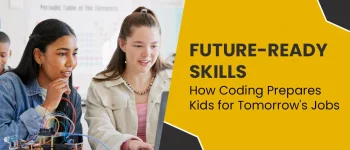
Python programming is touted as a valuable skill due to its versatility and ease of use. Learning Python enhances both technical and problem-solving abilities, making it a sought-after skill in various industries. It allows individuals to create web applications, analyze data, automate tasks, and build artificial intelligence systems. With Python’s popularity, resources for learning it are abundant, including online courses, tutorials, and documentation. Additionally, Python fosters confidence in learners by providing a gentle learning curve and a supportive community. Mastering Python programming can open up a range of career opportunities and empower individuals to tackle complex challenges effectively..
In the poem ‘The Zen of Python’ by Tim Peters, there is a profound line: ‘Errors should never pass silently.’ Isn’t this a beautiful life lesson? Surprisingly, it is also a lesson one must master to become an excellent programmer. This is beautiful that helps build character and confidence in learners.
Put simply, learning Python extends far beyond acquiring proficiency in a programming language. It catalyzes more than coding abilities; it empowers students with the skills and confidence necessary to thrive in “Tomorrowland”–a world dominated by robots and AI.
To give you a perspective, in 2015, 1,000 students and parents were surveyed by Ocado Technology to assess their receptivity to computer programing, and the results were astonishing. Python surpassed French as the preferred programming language in primary schools.
The surveys indicated that six out of 10 French parents prioritize Python over French. This trend transcends borders; tech-driven nations like the USA, UK, Singapore, and India are experiencing similar shifts. If this trend continues, as we expect, children will soon be learning how to control robots from an early age, shaping their technological prowess and skill sets.
Python’s versatility and widespread adoption make it a valuable tool for students in various fields. By mastering Python, students gain not only technical proficiency but also develop problem-solving skills, logical thinking, and computational reasoning. These skills are indispensable in navigating the complexities of the future, where technology intertwines with every aspect of our lives.
Furthermore, Python’s prominence in machine learning and AI further solidifies its significance. As these fields continue to revolutionize industries, Python equips students with the foundations to understand and contribute to cutting-edge advancements. It enables them to explore data analysis, pattern recognition, and the development of intelligent systems, giving them a competitive edge in the rapidly evolving landscape of businesses.
Python’s user-friendly syntax and extensive libraries also foster a supportive learning environment, making it accessible to students of varying skill levels. It encourages experimentation, creativity, and collaboration, allowing students to explore their ideas and turn them into reality. Through hands-on projects and practical applications, students gain a sense of accomplishment and build the confidence to tackle complex challenges.
When teaching Python to students, there are several tips that can help foster confidence. Starting with the basics and gradually increasing the complexity of the programming exercises allows students to build their skills at their own pace. Engaging in hands-on projects enables them to apply their knowledge and develop practical skills. Leveraging online resources and encouraging collaboration with other students can enhance the learning experience. Providing real-world examples of how Python is used in various industries helps students understand the practical relevance of their skills. Teaching debugging and problem-solving techniques and regularly assigning coding exercises also contribute to building confidence. Encouraging exploration of the Python ecosystem beyond the core language and fostering a growth mindset are important aspects of empowering students. Finally, showcasing their projects and achievements provides opportunities for recognition and boosts confidence.
In conclusion, learning Python not only equips students with technical proficiency but also builds their problem-solving skills and confidence. It provides them with the necessary tools to thrive in a world dominated by technology. By following these tips and creating a supportive learning environment, educators can help students master this powerful programming language and prepare them for the future.
Source: moonpreneur.com
Hashtags: #Building #Skills #Confidence #Python #Programming






 24hMinecraft is a Minecraft community created by fans, where users can share and download their favorite shader packs, mods, maps, texture packs, or expand their knowledge with our guides.
24hMinecraft is a Minecraft community created by fans, where users can share and download their favorite shader packs, mods, maps, texture packs, or expand their knowledge with our guides.
Leave a Reply